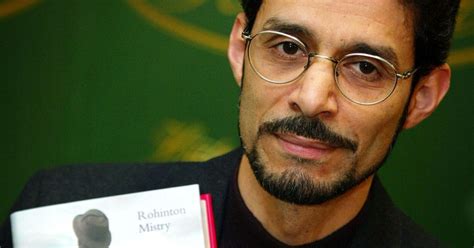A Quote by Neil Postman
People like ourselves may see nothing wondrous in writing, but our anthropologists know how strange and magical it appears to a purely oral people - a conversation with no one and yet with everyone. What could be stranger than the silence one encounters when addressing a question to a text? What could be more metaphysically puzzling than addressing an unseen audience, as every writer of books must do? And correcting oneself because one knows that an unknown reader will disapprove or misunderstand?
Quote Topics
Addressing
Anthropologists
Appears
Audience
Because
Books
Conversation
Correcting
Could
Encounters
Every
Everyone
How
Know
Know How
Knows
Like
Magical
May
Misunderstand
More
Must
Nothing
Oneself
Oral
Our
Ourselves
People
Purely
Puzzling
Question
Reader
See
Silence
Strange
Stranger
Text
Than
Unknown
Unseen
Will
Wondrous
Writer
Writing
Related Quotes
Nothing is stranger or more ticklish than a relationship between people who know each other only by sight, who meet and observe each other daily - no hourly - and are nevertheless compelled to keep up the pose of an indifferent stranger, neither greeting nor addressing each other, whether out of etiquette or their own whim.
I can't really sit around and talk with people who believe that the Bible is the way it happened, because that's man-made. I'm a writer, too; that's how I look at the Bible. Like, 'I could've written a better version than that,' you know? At least a more interesting one, and then maybe more people would go to church. I could definitely do a revamp.
We must be forewarned that only rarely does a text easily lend itself to the reader's curiosity... the reading of a text is a transaction between the reader and the text, which mediates the encounter between the reader and writer. It is a composition between the reader and the writer in which the reader "rewrites" the text making a determined effort not to betray the author's spirit.
If a writer of prose knows enough about what he is writing about he may omit things that he knows and the reader, if the writer is writing truly enough, will have a feeling of those things as strongly as though the writer had stated them. The dignity of movement of an iceberg is due to only one-eighth of it being above water. A writer who omits things because he does not know them only makes hollow places in his writing.
Having a clear faith, based on the creed of the church is often labeled today as fundamentalism. Whereas relativism, which is letting oneself be tossed and Of all the ways of acquiring books, writing them oneself is regarded as the most praiseworthy method. Writers are really people who write books not because they are poor, but because they are dissatisfied with the books which they could buy but do not like.
The only way to resonate at a level that persuades is to know who you are addressing. If it's true that the Audience is the hero, you need to spend time thinking about them. Really getting to know them to the point it feels like they are a friend. May times we picture our audience as a large clump of strangers. Instead, you need to picture them as individuals standing in line to have a personal conversation with you. It's easy to persuade a friend, you need to think about your audience until you know them as a friend.
There's a feeling of despair for some, but that's not what we wanted. Because the whole movie is without dialogue, it's more a question than an answer. We wanted to make a question mark so people could project what they wanted onto 'Electroma' - some people see it as sad, some as happy. Everyone is different.
One of the most fundamental questions people have about defense attorneys is, 'How can you do that? How can you go to bat everyday for a person that you may not know is guilty but you have a pretty good idea that he's not so innocent?' It's a question that defense attorneys answer for themselves by not addressing.
How often I have tried to tell writing students that the first thing a writer must do is love the reader and wish the reader well. The writer must trust the reader to be at least as intelligent as he is. Only in such well wishing and trust, only when the writer feels he is writing a letter to a good friend, only then will the magic happen.
Every city, every town, every region in USA has these weird things - the way they pronounce words, or what they call soda, or how people drive. It's a huge country, and there's all these strange pockets of behavioral patterns that social anthropologists could spend lifetimes researching and reporting on.
Like when you pick up a book and you don't realize what type of text it is - it could be an essay, a novel, a biography - and at one point you realize you don't know where, as a reader, you want to be. Where are you going with this text? What is the goal? How are you supposed to interpret what you're reading? And people's responses vary - some dislike it, and are put off by the confusion, the lack of comprehension.
A handwritten letter carries a lot of risk. It's a one-sided conversation that reveals the truth of the writer. Furthermore, the writer is not there to see the reaction of the person he writes to, so there's a great unknown to the process that requires a leap of faith. The writer has to choose the right words to express his sentences, and then, once he has sealed the envelope, he has to place those thoughts in the hands of someone else, trusting that the feelings will be delivered, and that the recipient will understand the writer's intent. How childish to think that could be easy.


































